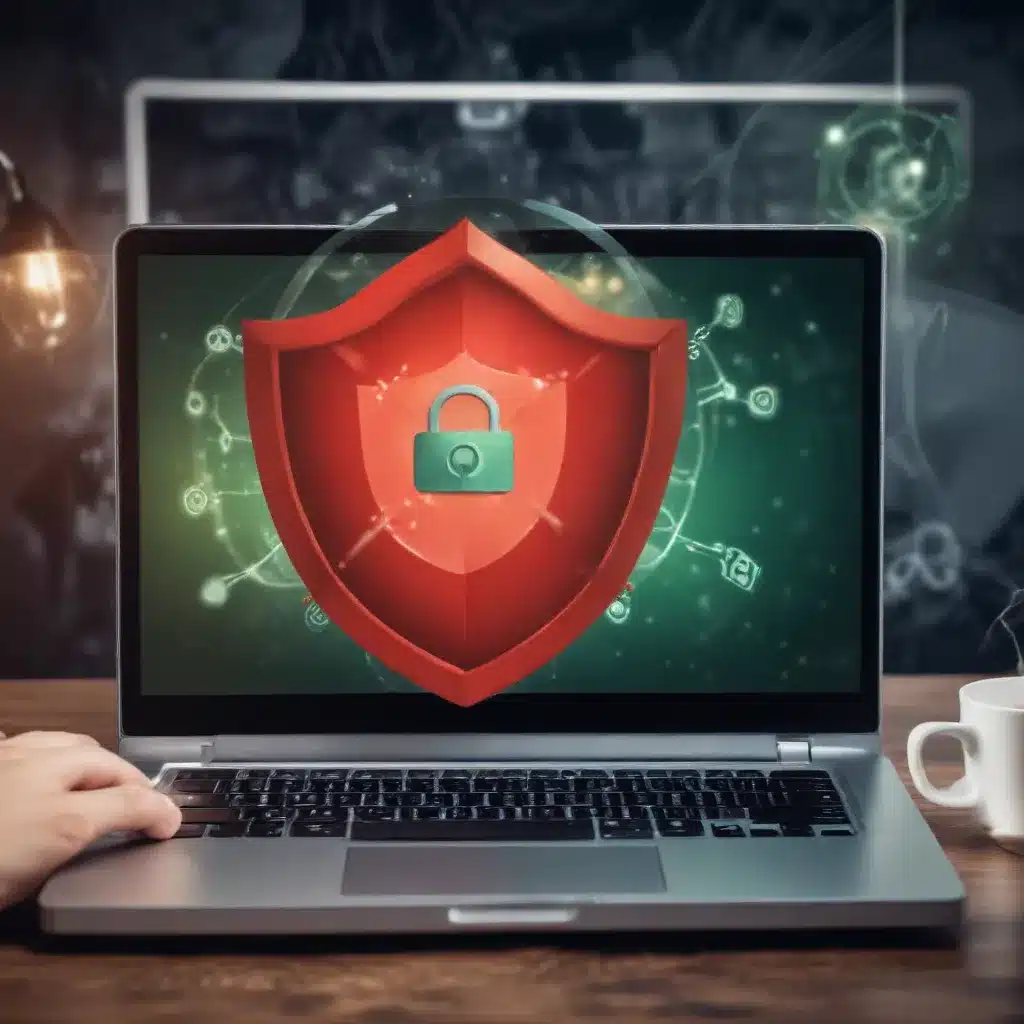
The Pitfalls of Relying on Antivirus Software
As seasoned IT professionals, we’ve seen the good, the bad, and the ugly when it comes to antivirus software. While these security tools are often touted as essential for protecting your devices, the reality is that they can sometimes do more harm than good. In this comprehensive guide, we’ll explore the common issues associated with antivirus software and provide practical solutions to help you navigate the ever-evolving landscape of cybersecurity.
The Myth of Complete Protection
One of the biggest misconceptions about antivirus software is that it can provide complete protection against all forms of malware. The truth is, modern cyber threats are becoming increasingly sophisticated, and no single antivirus solution can keep up with the pace of innovation. Malware authors are constantly finding new ways to bypass traditional signature-based detection, rendering many antivirus programs ineffective.
As we’ve seen in the Reddit thread Why is Antivirus so Hated or Disregarded?, some users have found that they can manage just fine without any antivirus software, relying on their own vigilance and common sense to avoid potential threats. While this approach may work for highly tech-savvy individuals, it’s not a practical solution for the average user who may not have the necessary skills to navigate the ever-changing cybersecurity landscape.
The Compatibility Conundrum
Another common issue with antivirus software is its tendency to interfere with other applications and system processes. As the Spiceworks community thread Sophos and Malwarebytes at Same Server highlights, running multiple antivirus solutions on the same machine can lead to resource conflicts, system slowdowns, and even failures.
The problem arises when antivirus programs attempt to monitor and scan files in real-time, often causing compatibility issues with other security-sensitive applications, such as games or enterprise software. This can result in frustrating problems, like the error code 0xc0000005 experienced by the Overwatch 2 player in the Reddit post Anyone Know How to Fix This?, where the antivirus software was the culprit.
The Unintended Consequences
While antivirus software is designed to protect users, it can sometimes have the opposite effect, causing more harm than good. This is particularly evident in the Bleeping Computer forum thread 0xc0000005 Error Code, Easy Anti-Cheat, where users reported experiencing issues with Easy Anti-Cheat, a security solution used by many games, due to conflicts with their antivirus software.
In these scenarios, the very tools meant to safeguard the system end up creating more problems, leading to frustration, system instability, and even the inability to run essential applications. As one user in the forum eloquently stated, “I hate anti-cheat software. Causes more harm than good too often.”
The Solution: A Balanced Approach to Cybersecurity
Given the limitations and potential pitfalls of traditional antivirus software, it’s clear that a more nuanced and balanced approach to cybersecurity is needed. Here’s how you can protect your devices without the hassle:
Embrace Next-Generation Security Solutions
Rather than relying on outdated signature-based antivirus programs, consider adopting next-generation security solutions that utilize more advanced detection techniques, such as behavioral analysis and machine learning. These solutions are designed to identify and mitigate emerging threats, providing a more comprehensive and adaptive layer of protection.
One such solution that has gained traction in the industry is Sophos Intercept X, which can be used alongside other antivirus products to complement their capabilities, as mentioned in the Spiceworks thread. By taking a layered approach to security, you can enhance your protection without the typical compatibility issues associated with running multiple antivirus programs.
Prioritize System Optimization and Maintenance
Keeping your system optimized and well-maintained is crucial for maintaining security. Regular software updates, firmware patches, and thorough system cleanups can go a long way in reducing the risk of vulnerabilities and improving overall system performance.
When it comes to antivirus software, be selective and ensure that it’s not causing more problems than it’s solving. Consider uninstalling or disabling any antivirus programs that are known to cause conflicts with your other applications or that are no longer providing adequate protection.
Empower Users with Education and Best Practices
Rather than relying solely on antivirus software, empower your users with comprehensive cybersecurity education. Teach them how to identify and avoid common social engineering tactics, such as phishing emails and suspicious downloads. Encourage them to exercise caution when using the internet and to be proactive in reporting any suspicious activities.
By fostering a culture of security awareness and responsible digital habits, you can create a more resilient environment that is less dependent on the limitations of traditional antivirus solutions.
Conclusion: Embracing a Holistic Approach to Cybersecurity
In the ever-evolving world of technology, it’s clear that the traditional approach to antivirus software is no longer sufficient. By recognizing the limitations of these tools and embracing a more balanced, holistic approach to cybersecurity, you can better protect your devices and ensure the smooth operation of your critical systems.
At IT Fix, we’re committed to providing our readers with practical, up-to-date insights and solutions to help them navigate the complex landscape of IT and computer repair. By combining next-generation security technologies, system optimization, and user education, we can empower individuals and organizations to stay one step ahead of the ever-changing threat landscape.
Remember, the key to effective cybersecurity is not relying on a single solution, but rather, adopting a multilayered approach that adapts to the evolving needs of your environment. With the right strategies and tools, you can enjoy the benefits of technology without the constant worry of malicious attacks.












